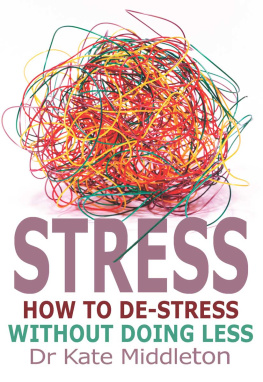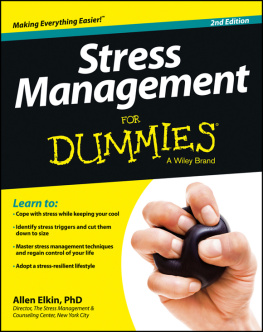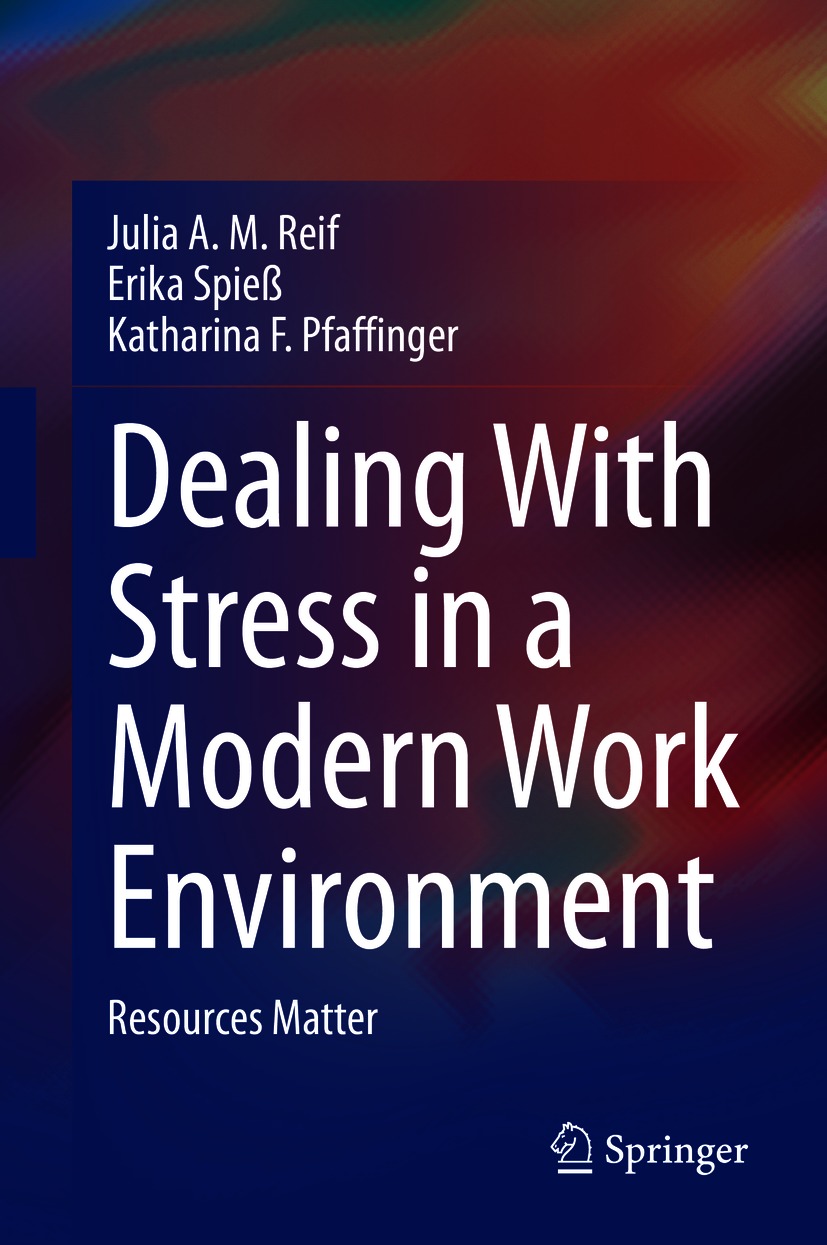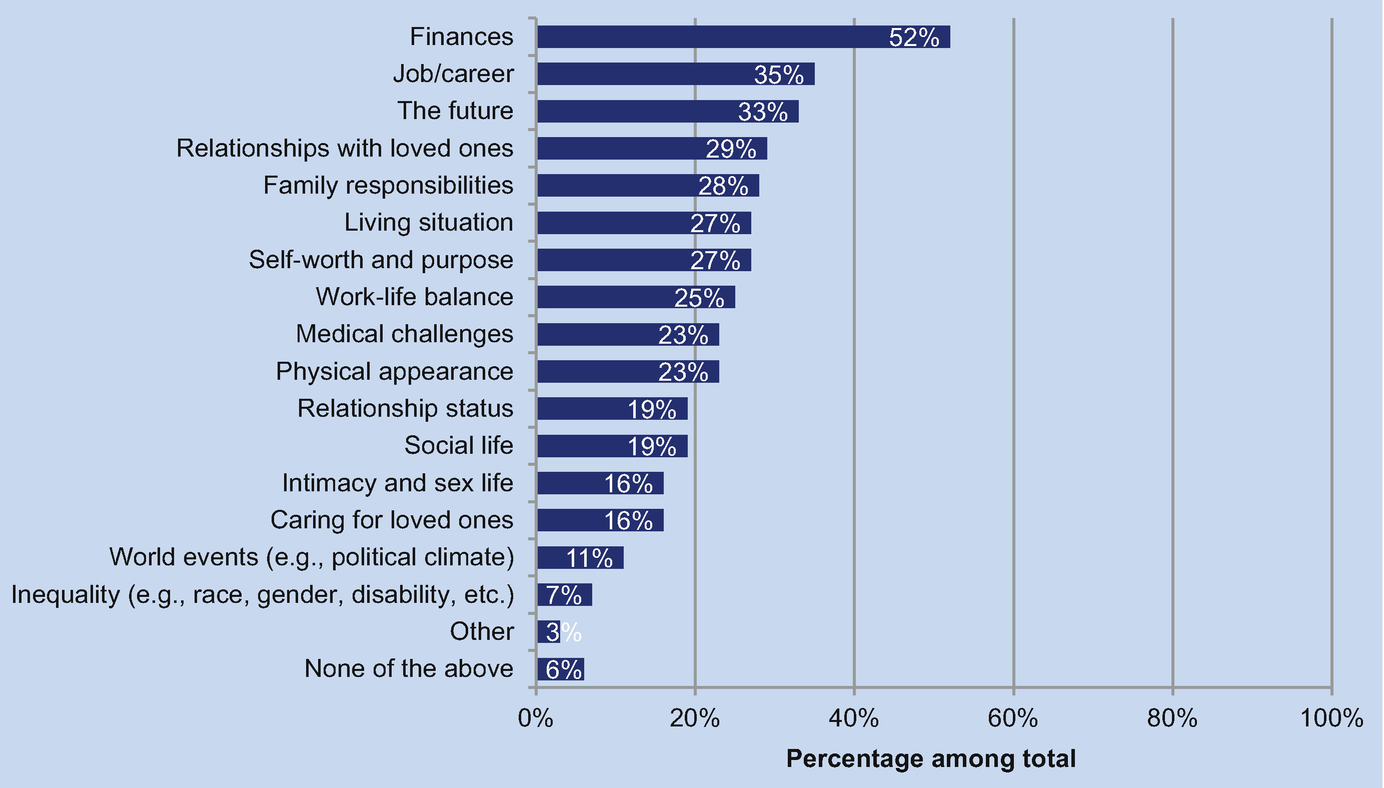Julia A. M. Reif , Erika Spie and Katharina F. Pfaffinger
Dealing with Stress in a Modern Work Environment
Resources Matter
1st ed. 2021

Logo of the publisher
Julia A. M. Reif
Economic and Organisational Psychology, Ludwig-Maximilians-Universitaet Muenchen, Munich, Germany
Erika Spie
Economic and Organisational Psychology, Ludwig-Maximilians-Universitaet Muenchen, Munich, Germany
Katharina F. Pfaffinger
Economic and Organisational Psychology, Ludwig-Maximilians-Universitaet Muenchen, Munich, Germany
ISBN 978-3-030-58497-9 e-ISBN 978-3-030-58498-6
https://doi.org/10.1007/978-3-030-58498-6
Original German edition published by Springer Verlag GmbH, Heidelberg, 2018. Originally published with the title: Effektiver Umgang mit Stress im Arbeitsleben by Erika Spie, Julia Reif und Peter Stadler
The Editor(s) (if applicable) and The Author(s), under exclusive license to Springer Nature Switzerland AG 2018, 2021
This work is subject to copyright. All rights are solely and exclusively licensed by the Publisher, whether the whole or part of the material is concerned, specifically the rights of translation, reprinting, reuse of illustrations, recitation, broadcasting, reproduction on microfilms or in any other physical way, and transmission or information storage and retrieval, electronic adaptation, computer software, or by similar or dissimilar methodology now known or hereafter developed.
The use of general descriptive names, registered names, trademarks, service marks, etc. in this publication does not imply, even in the absence of a specific statement, that such names are exempt from the relevant protective laws and regulations and therefore free for general use.
The publisher, the authors and the editors are safe to assume that the advice and information in this book are believed to be true and accurate at the date of publication. Neither the publisher nor the authors or the editors give a warranty, expressed or implied, with respect to the material contained herein or for any errors or omissions that may have been made. The publisher remains neutral with regard to jurisdictional claims in published maps and institutional affiliations.
This Springer imprint is published by the registered company Springer Nature Switzerland AG
The registered company address is: Gewerbestrasse 11, 6330 Cham, Switzerland
Preface
To call stress a pandemic, as many authors on the topic do, seems inappropriate in times of Covid-19. However, in fact, stress is a global problem, and a severe burden on the body, soul, and economy, as is a pandemic. Stress can lead to physical and mental illnesses and costs organizations billions of dollars due to employees sick leave or reduced performance.
As economic and organizational psychologists, we want to support employees, managers, and organizational experts in effectively counteracting stress and making use of resources in the working world. We see ourselves, like our chair Prof. Dr. Felix Brodbeck, in the tradition of economic and organizational psychology, which has the goal of providing evidence-based insights on human behavior and experience at work to companies and public organizations.
By explaining what stress is (Chap.).
This book is based on the German book Effektiver Umgang mit Stress Gesundheitsmanagement im Beruf (Reif, Spie, & Stadler, 2018). However, we did not just translate the book into English, but transferred the previous work into an international context. We reviewed numerous current scientific meta-analyses and reviews on stress, stressors, resources, and the corresponding practice-oriented literature and put them into a comprehensible and illustrative form. Moreover, we delved deeper into the discussion of new forms of stressors and resources due to the rising spread and use of digital technologies.
Stress and strain arise in a complex system of stressors and resources that encompasses the person, the environment, and their transactions. Science can offer assistance in managing this complexity, for example by carrying out evaluation studies on health interventions in organizations and figuring out their effectiveness by applying criteria for a humane working environment. A humane design of work implies that people can carry out their activities without any risk to their health, which also positively affects their well-being and motivation. In this sense, this book emphasizes the fundamental role of resources in the stress process and shows how a combination of organizational and individual-level interventions can counteract stress in different phases of the stress process.
We want to thank Felix Brodbeck, Keri Hartman, Jrgen Schultz-Gambard, Peter Stadler, Ralph Wosche, and our students for their support and inspiring discussions, and our families and friends for their patience when we were once again lost in our thoughts on the book and its contents.
Reif, J. A. M., Spie, E., & Stadler, P. (2018). Effektiver Umgang mit Stress. Gesundheitsmanagement im Beruf. In F. C. Brodbeck, E. Kircher, & R. Wosche (Hrsg.), Die Wirtschaftspsychologie. Berlin, Heidelberg: Springer-Verlag.
Julia A. M. Reif
Erika Spie
Katharina F. Pfaffinger
Munich, Germany
February 10th 2021
The Editor(s) (if applicable) and The Author(s), under exclusive license to Springer Nature Switzerland AG 2021
J. A. M. Reif et al. Dealing With Stress in a Modern Work Environment https://doi.org/10.1007/978-3-030-58498-6_1
1. Understanding Stress
Julia A. M. Reif
(1)
Economic and Organisational Psychology, Ludwig-Maximilians-Universitaet Muenchen, Munich, Germany
Keywords
Work stress Stress definition New technologies Stress costs Eustress Distress Stress stimulus Stress response Transactional approach Stress model
In this chapter, we show that work-related stress is among the top personal stressors causing severe health problems and costs for organizations and health care systems. We describe the emergence of new forms of work in a digitalized world and the new forms of stressors and stress that go along with them. We describe basic approaches to understanding stress, including stimulus-based , reaction-based, and transaction-based approaches. Integrating the main ideas of these approaches, we present a general stress model, which is also the basis for the structure of this book.
The birth of stress
Stress was born in 1936 when Hans Selye, a doctor from Vienna, created the word stress to describe the bodys non-specific response to any demand for change (Selye, ).
1.1 Brave New Work?
The world is stressed. When asked whether they experienced stress during much of the day yesterday, 55% of Americans said yes. The number of stressed people was higher only in Greece (59%), the Philippines (58%), and Tanzania (57%) (Gallup, ).

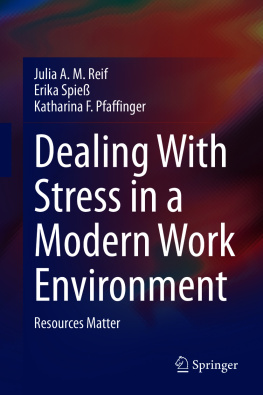
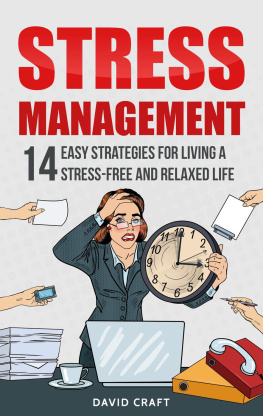

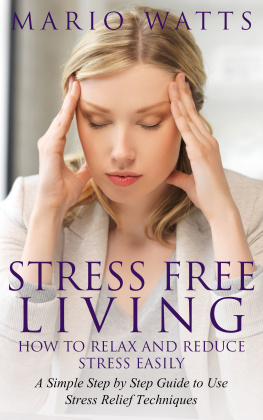
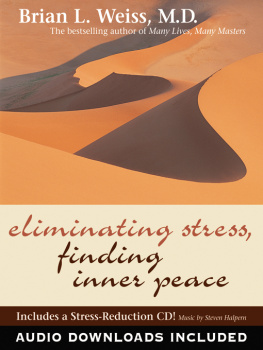
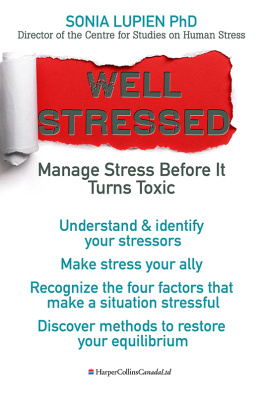
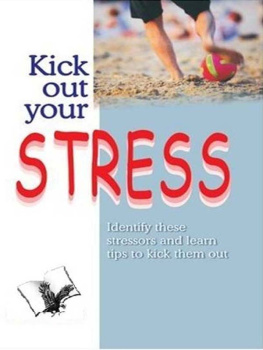
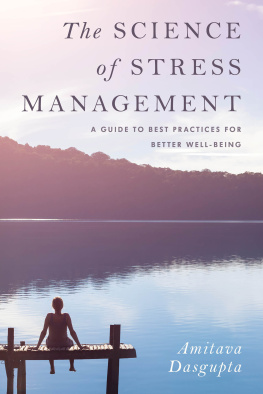
![Elizabeth Anne Scott - 8 keys to stress management : [simple and effective strategies to transform your experience of stress]](/uploads/posts/book/102232/thumbs/elizabeth-anne-scott-8-keys-to-stress-management.jpg)
